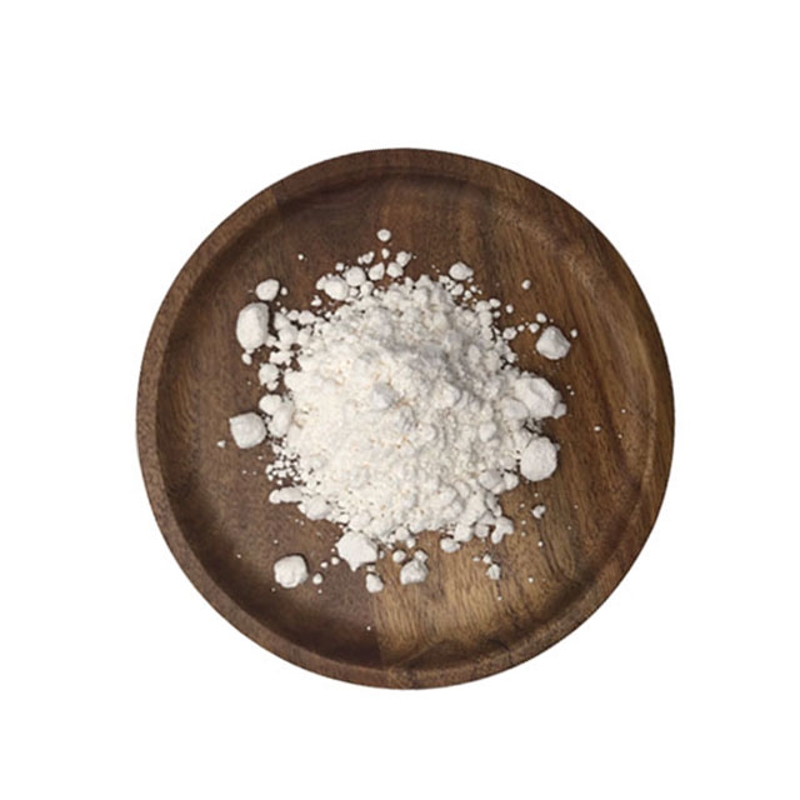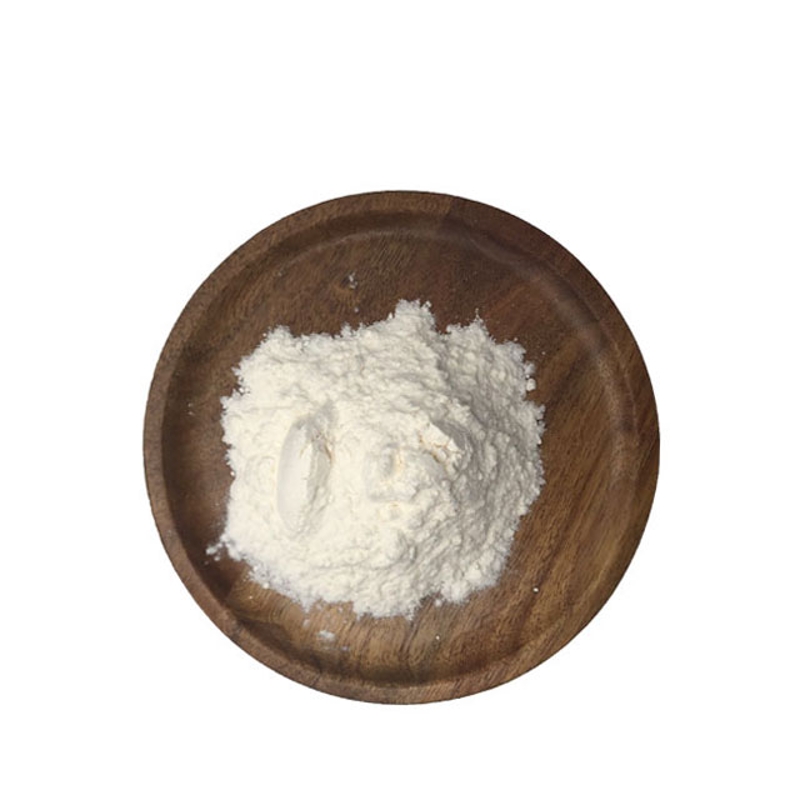A review: Met mutation non-small cell lung cancer latest research progress.
-
Last Update: 2020-07-18
-
Source: Internet
-
Author: User
Search more information of high quality chemicals, good prices and reliable suppliers, visit
www.echemi.com
Stromal epithelial cell transformation factor (MET) is considered to be another important molecular therapeutic target for non-small cell lung cancer after EGFR / ALK. Let's review the new progress of met targeted therapy in ASCO this year! Background and methods: met amplification was found in 1% - 6% of NSCLC patients, and the incidence of gene copy number (GCN) ≥ 10 was 2%. Studies showed that high level of met amplification can be used as a potential predictor of the efficacy of met targeted therapy.capmatinib (camatinib) is a selective Met receptor tyrosine kinase inhibitor, which can inhibit the downstream signaling pathway of tumor growth and progression.the phase II geometry mono-1 study is a multicenter cohort study. The results of previous studies showed that the orr of carmatinib for first-line treatment (cohort 5b) and second-line / third-line treatment (cohort 4) was 67.9% and 40.6%, respectively.based on this, carmatinib has just been approved by the U.S. FDA as the first targeted drug for metex14.the efficacy and safety of carmatinib for advanced NSCLC patients with high level met amplification (GCN ≥ 10) were announced at the ASCO meeting.the study included ALK / EGFR wild-type, met amplification (GCN ≥ 10) stage IIIB / IV NSCLC patients, ECoG PS 0 – 1, receiving 400 mg of carbatinib twice a day.the primary endpoint was the overall response rate (ORR) assessed by the independent review committee, and the secondary endpoint included the duration of remission (DOR).results: as of January 6, 2020, there were 84 patients with evaluable efficacy, 69 patients in 1a cohort and 15 patients in 5A cohort, Orr of bIRC was 29% and 40%, DCR was 66.7%, 71% and median dor were 8.31 months and 7.54 months, median PFS were 4.07 months, 4.17 months, and median OS were 10.61 months and 9.56 months, respectively.conclusion: carbatinib has antitumor activity in patients with high level met amplification of NSCLC (GCN ≥ 10), and the remission rate is higher in newly treated patients.clinical trial information: nct02414139. Background and methods: sym015 is a new type of met antibody, which can trigger met degradation through a unique mechanism, and has higher specificity.sym015-01 phase 1A study reached the main endpoint, that is, the recommended dose (rp2d) of phase II study on the first day of the first cycle was 18 mg / kg, followed by 12 mg / kg (q2w).based on preliminary results, patients with NSCLC with met amplification or exon 14 jump mutation were included in the phase 2A extended study.the ASCO released the interim analysis results of the phase 2A study.results: as of January 2020, 45 patients with a median age of 61.7 years were included in the study. The incidence of treatment-related adverse events (trae) was 42.2%, and the incidence of grade 3 or above trae was 13.3%.no patients stopped or died due to trae. Fatigue (13.3%) and peripheral edema (11.1%) were the most common trae in patients with≥ 10%.of the 20 NSCLC patients, 5 patients achieved confirmed partial remission (PR), The orr was 25%, 11 patients achieved disease stability (SD), DCR was 80%, 2 cases of disease progression (PR), 2 cases could not be evaluated, 10 cases were met TKI treated patients, Orr was 50%, DCR was 100%, 10 cases were met TKI treated patients, DCR was 60%, overall median PFS was 5.5 months, median PFS was 6.5 months and 5.4 months respectively. conclusion: sym015 is well tolerated, and the remission rate of sym015 is similar in the initial and treated patients with met TKI. The combination of met TKI may delay or block the occurrence of drug resistance. is worthy of further exploration. clinical trial information: nct02648724. waritinib was used in other NSCLC histological subtypes of lung sarcomatoid carcinoma, and the disease control rate was 93.4%! Background and methods: pulmonary sarcomatoid carcinoma (PSC) is a rare NSCLC with poor prognosis, chemotherapy intolerance (PFS < 3 months), met Valitinib is a highly selective oral met tyrosine kinase inhibitor. Voritinib combined with oxitinib has shown antitumor activity in patients with EGFR mutation / met amplification of NSCLC (Yu h, et al. 2019, AACR, abstract ct032). a multicenter, single arm phase II study was conducted to evaluate the efficacy and safety of voritinib in patients with unresectable or metastatic jump mutation in exon 14 of met or other NSCLC. the primary endpoint was orr assessed by IRC. results: as of October 2019, 593 patients were screened, including 87 patients with met 14 exon jump mutation and 70 treated patients. The median age was 68.7 years old, 58.6% of patients were male, 92.9% were stage IV, 35.7% were PSC. 61 patients could be evaluated for efficacy, Orr was 47.5%, DCR was 93.4%, median remission duration was not reached, and median PFS was 6.8 months. conclusion: voritinib has potential antitumor activity and acceptable safety in NSCLC patients with met 14 mutation. clinical trial information: nct02897479. geometry mono-1: cohort 6 study data. Background and methods: This study publishes the results of cohort 6, which includes adult patients with stage IIIB / IV advanced after one treatment with high-level met amplification (GCN ≥ 10) or met 14 exon jump mutation (any GCN), ECoG PS 0 – 1, ALK / EGFR wild type. the primary endpoint was Orr and Dor assessed by bIRC, and the secondary endpoint was orr, dor and DCR assessed by researchers. results: as of January 6, 2020, 34 patients with metex14 mutation (n = 31) or high-level met amplification (n = 3) were included in the study In exon 14 mutation patients, the orr, DCR, dor and PFS were 48.4%, 90.3%, 6.93 months and 8.11 months respectively. The results of the researchers' assessment were similar to those of bIRC. Only three met amplification cases were included in the study. All the three patients achieved SD and DCR was 100%. conclusion: the results show that the efficacy of carbatinib in the second-line treatment of NSCLC patients with met exon 14 jump mutation has been confirmed. clinical trial information: nct02414139. vision study: met 14 exon jump mutation brain metastasis new hope background and methods: the preliminary results of vision study showed that tepotinib has shown curative effect in patients with NSCLC. vision cohort a included EGFR / ALK wild-type, met 14 exon skip mutation patients with advanced NSCLC, who received oral tepotinib (500mg QD), the primary endpoint was objective response rate (ORR). results: at the end of the data, 151 patients received tepotinib treatment, 99 patients underwent liquid biopsy / tumor tissue biopsy (L + / T +), 66 patients underwent liquid biopsy (L +), and 60 patients underwent tissue biopsy (T +). Three subgroups were intention to analyze (ITT) population. At least 6 months of follow-up, IRC of L + / T + subgroup, L + and T + subgroup were analyzed The orr was 46.5%, 50%, 48.5%, and the median PFS of the three groups were 8.5 months, 8.5 months and 11 months, respectively. the results were similar in patients with brain metastases at baseline, with IRC orr of 54.5%, median dor of 9.5 months and median PFS of 10.9 months. conclusion: tepotinib has a promising long-term clinical antitumor activity in patients with met 14 exon jump mutation, including brain metastasis patients, and its safety is controllable. Clinical trial information: nct02864992. References: 9509 cappatinib in patients with high level met enhanced non – small cell lung cancer (NSCLC): results from the phase 2 geometry mono-1 study.9510-safety and preliminary clinical activity of the met antibacterial mixture, Sym015 in advanced non-small cell lung cancer (NSCLC) patients with MET amplification/exon 14 deletion (METAmp/Ex14∆).9519-Phase II study of savolitinib in patients (pts) with pulmonary sarcomatoid carcinoma (PSC) and other types of non-small cell lung cancer (NSCLC) harboring MET exon 14 skipping mutations (METex14+).9520-Capmatinib in patients with METex14-mutated or high-level MET-amplified advanced non–small-cell lung cancer (NSCLC): results from cohort 6 of the phase 2 GEOMETRY mono-1 study.9556-Primary efficacy and biomarker analyses from the VISION study of tepotinib in patients (pts) with non-small cell lung cancer (NSCLC) with METex14 skipping.
This article is an English version of an article which is originally in the Chinese language on echemi.com and is provided for information purposes only.
This website makes no representation or warranty of any kind, either expressed or implied, as to the accuracy, completeness ownership or reliability of
the article or any translations thereof. If you have any concerns or complaints relating to the article, please send an email, providing a detailed
description of the concern or complaint, to
service@echemi.com. A staff member will contact you within 5 working days. Once verified, infringing content
will be removed immediately.







